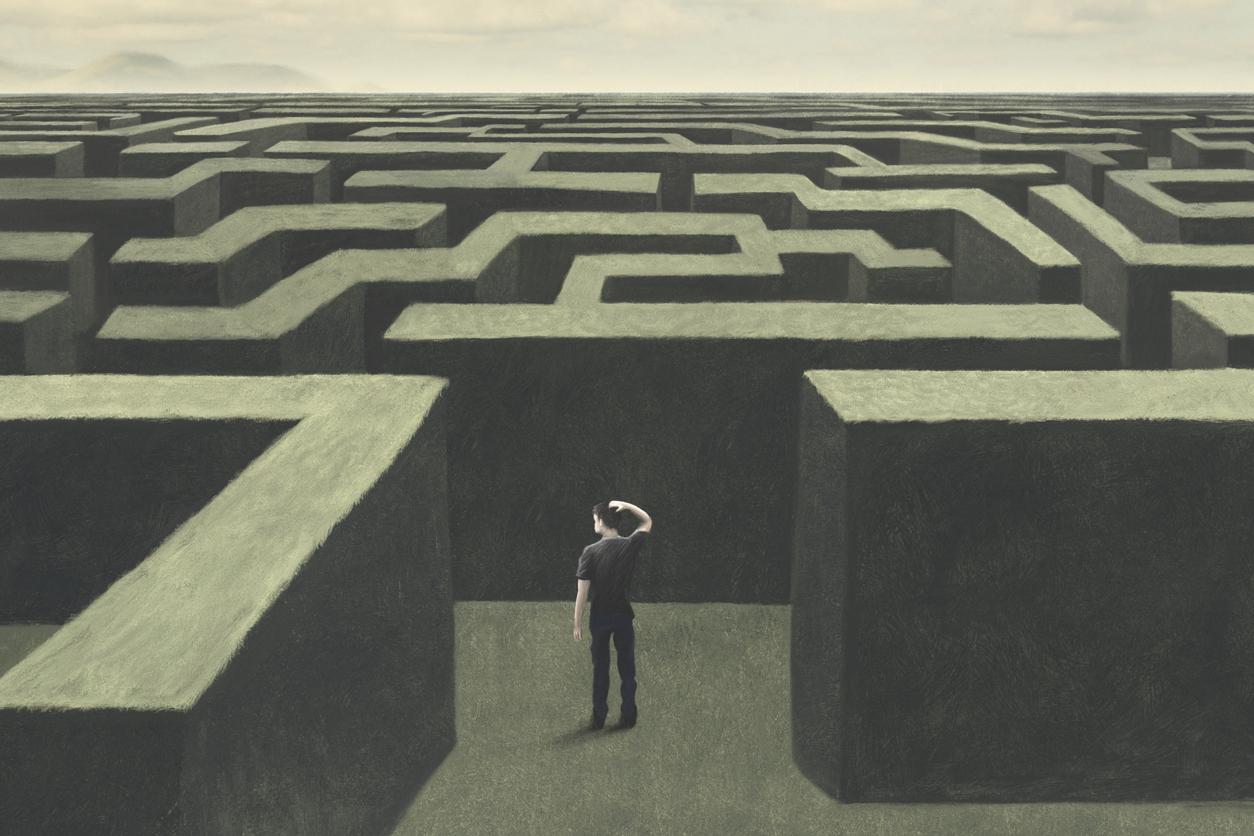Changes in the way we explore a new space could become a new clinical marker of early cognitive decline in dementia, a study suggests.

- Our spatial navigation ability tends to decline with age. A decline attributed to brain changes naturally associated with aging, but also caused by our way of exploring a new environment, which tends to change with age.
- “Compared to younger people, middle-aged people explored the maze environment less [à l’étude]because they traveled less distance, stopped longer at decision points, and visited more objects.”
- The researchers believe that these types of changes in exploratory behavior “could become a new clinical marker of early cognitive decline in dementia.”
Spatial navigation, the ability to follow a route from point A to point B, is a skill we use every day… but it tends to decline with age. This decline in directionality is generally attributed to a deterioration in spatial memory, due to brain changes that naturally occur with aging.
According to a new study, published in the journal Frontiers in Aging Neurosciencethis decline would also be caused by the way we explore a new environment, which tends to change with age.
Spatial orientation tests in a virtual reality maze
To reach this conclusion, researchers from the University of California, Irvine (USA) conducted experiments on 87 middle-aged adults (average age 50) and 50 young people with an average age of 19. None had a history of neurological disease, such as dementia, or psychiatric illness.
Participants were asked to explore and navigate a virtual reality maze, consisting of intersections and corridors, separated by hedges. Specific objects were scattered throughout the route at strategic locations that served as landmarks. During a first exploration phase, volunteers were asked to freely navigate the maze and learn the location of the objects. During a second orientation phase, they were asked to apply what they had learned, navigating between two randomly selected objects within 45 seconds.
Unsurprisingly, young people had on average a higher success rate in finding their way. A difference in success “partly due to qualitative changes observed in how young and middle-aged participants learned the maze”according to a communicated.

Middle-aged people explore new environments less than young people
“Compared to younger people, middle-aged people explored the maze environment less, as they traveled less distance, stopped longer at decision points, and visited more objects.”explain the researchers, specifying that “The differences were so notable that they were able to predict, via artificial intelligence, whether a participant was young or middle-aged.”. Generally speaking, middle-aged people have tended to “prioritize learning specific locations within the maze, as opposed to the overall layout of the maze.”
“We are currently investigating whether these types of changes in exploratory behavior can be identified in people at risk for or with Alzheimer’s disease,” concludes the authors of the study, estimating that such behavioral alteration “could become a new clinical marker of early cognitive decline linked to dementia.”
















